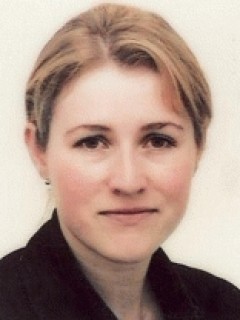As a relative newcomer to the Social Research Association (SRA), I was interested to see how the annual conference would compare with AQR and MRS functions.
The choice of venue set the tone for the day. The Brunei Gallery at the University of London had a serious-minded, academic feel, well-suited to the weighty topics on the day’s agenda. The event perhaps lacked a bit of gloss as a result, but this seemed appropriate for a gathering of people whose work, by and large, is funded by public money and charitable donations.
Another notable difference from AQR and MRS conferences was the preponderance of academic researchers and public sector client organisations. As an agency researcher I certainly felt in the minority.
After the formalities of the AGM, the conference proper was kicked off by a rousing speech from Ian Diamond, chief executive of the Economic and Social Research Council (ESRC). His message was that social science is relevant to almost every aspect of public life, and that governments misuse or ignore it at their peril.
He used a few choice statistics to illustrate how social research is uniquely able to predict (and allow us to plan for) looming social change. Two examples particularly struck me. One was the huge predicted drop over the next 50 years in the number of women aged 80 who have a living child, and the implications this has for social care. The other was the fact that actual life expectancy is far out-stripping perceptions of life-expectancy a bonus, you might think, if you end up with 20 more years than you thought, but a bit of a problem if you haven’t budgeted for it in your pension planning.
The conference’s theme was ‘Challenging Myth, Researching Reality’, and this worked very well as a springboard for the wide range of speakers and presentations that followed. It also meant that the media came in for an awful lot of bashing, as one of the prime propagators of social myth. Cue a few embarrassed glances as a member of the audience began his question with the words: ‘As a journalist...’
Variations on a theme
Variations on the conference theme are too numerous to list here, but there were some real highlights. John Curtice from the University of Strathclyde talked about general elections and the myths surrounding how and why people vote. Most interesting was his demonstration that, contrary to perception, there is very little difference between Conservative and Labour voters in terms of attitudes to tax and spend: the real difference lies in views on redistribution of wealth.
Rena Bivens from the University of Glasgow talked about the role of the media in shaping public perception, with particular reference to two topical themes: mental health and the Israeli-Palestinian conflict. The focus here was on qualitative methodology, and the research had employed some interesting techniques.
In one exercise, respondents had been shown an image or headline relating to a recent news story and been asked to write their own news article based on their memory of events. The finding was that, time and time again, respondents’ stories mirrored the bias found in the media coverage, irrespective of the ‘truth’ of the event. Thus, a contested episode in the Israeli-Palestinian conflict (the death of Mohammed al-Durrah) was consistently described as an accidental shooting whereas in fact, Israel and Palestine gave conflicting accounts.
As usual, though, it was quant that got the snappiest headline: a 2001 survey suggested that 66% of British people did not know who occupies the occupied territories, and, of the rest, nearly as many said Palestine as Israel.
Thirst for debate
The plenary morning session was followed by a series of break-out workshops. The format worked fairly well, though my impression was that delegates were itching for more time for questions and debate.
A particular highlight was the session on ‘Obesity, social control and the tyranny of health’ by Dr Michael Gard, who argued that the ‘obesity epidemic’ has, at the very least, been overstated. He talked about the reasons why the media and others, in a tendency towards Golden Age-ism, have seized on obesity as evidence of a decline in moral values. This has led some commentators to blame the phenomenon on anything from computer games to gay marriage (Lord Tebbitt, who else?).
Both this presentation and Rachel Herring’s session on binge drinking demonstrated the fragility, as well as the power, of research. There is apparently very little consistent evidence on the two supposed social problems of obesity and binge drinking, whom they affect and whether or not they are getting worse it all depends on how you ask the question and how you present the resulting data.
The conference closed with a plenary panel discussion. After the seriousness of much of the day, there was a welcome note of levity from Dermot Scott, director of the European Parliament’s UK office. He pondered how social research can help combat media myths such as ‘EU says pigs must have toys’ and ‘EU tells women they must recycle their vibrators’.
Although interesting, the final session felt a little rushed. In particular, I would like to have heard more from the Refugee Council, whose problems with media myth were perhaps the most acute of all.
Overall, I found this a fascinating day, and I would urge any AQR members who work in the public sector field to go to next year’s event. It seemed to me that commercial research agencies were under-represented, and I’m sure that others, like me, would get much from the conference.


